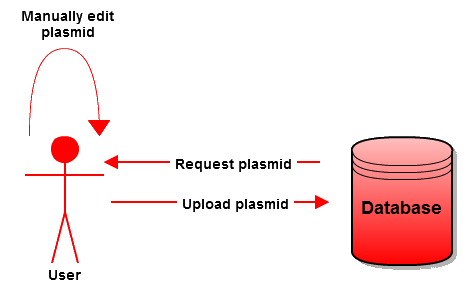Team:Amsterdam/software/logbook designer/future perspective
From 2012.igem.org




Logbook Designer: Future Perspective
The Logbook Designer is not yet a product that is able to fully push the boundaries of the Cellular Logbook such as, for example, Blast is in its field. This page provides some insight on what is needed to add and adjust to this webtool if the Cellular Logbook is to be a massive platform for new technology.
Optimization
The Logbook Designer presents the user with a construct that does not break any rules when plasmid design is taken into account. However, it does not attempt to create the optimal Cellular Logbook plasmid. A sub-optimal plasmid is more than good enough when creating a proof of concept, which is what we are doing with our iGEM project. But when we think about industrializing the Cellular Logbook, it is necessary that every plasmid is optimized. If the Logbook Designer wants to achieve this, the algorithm does not only have to take into account the optimal distances between features, optimal features and optimal combination of features. The algorithm also has to think ahead when it comes to primer design and cloning steps required to create the plasmid. In order to have a fully functional and industrialized Logbook Designer, the optimization of the algorithm is an absolute necessity.
Database
In order to make the Cellular Logbook the standard biosensor system not only is quick and efficient plasmid design a necessity, but also the easy to retrieve, edit and distribute already existing plasmids. The easiest way to accomplish all this is by designing and maintaining a Cellular Logbook database on a dedicated server. This database should allow for easy to use uploading, downloading and editing of Cellular Logbook plasmids.
Literature
Scientific research stands and falls with literature and experiments backing up your hypothesis. If the Cellular Logbook plasmid constructed by the tool is used directly in research and as reference in papers, it is very plausible that there are notable flaws in the design and reviewers won't take your research seriously. To prevent this, cross-checking of every feature is required. Text mining of literature for each component is an easy way to present the user with extra information about the plasmid and its components. This way all results can be double checked by the tool and the given literature.
 "
"


